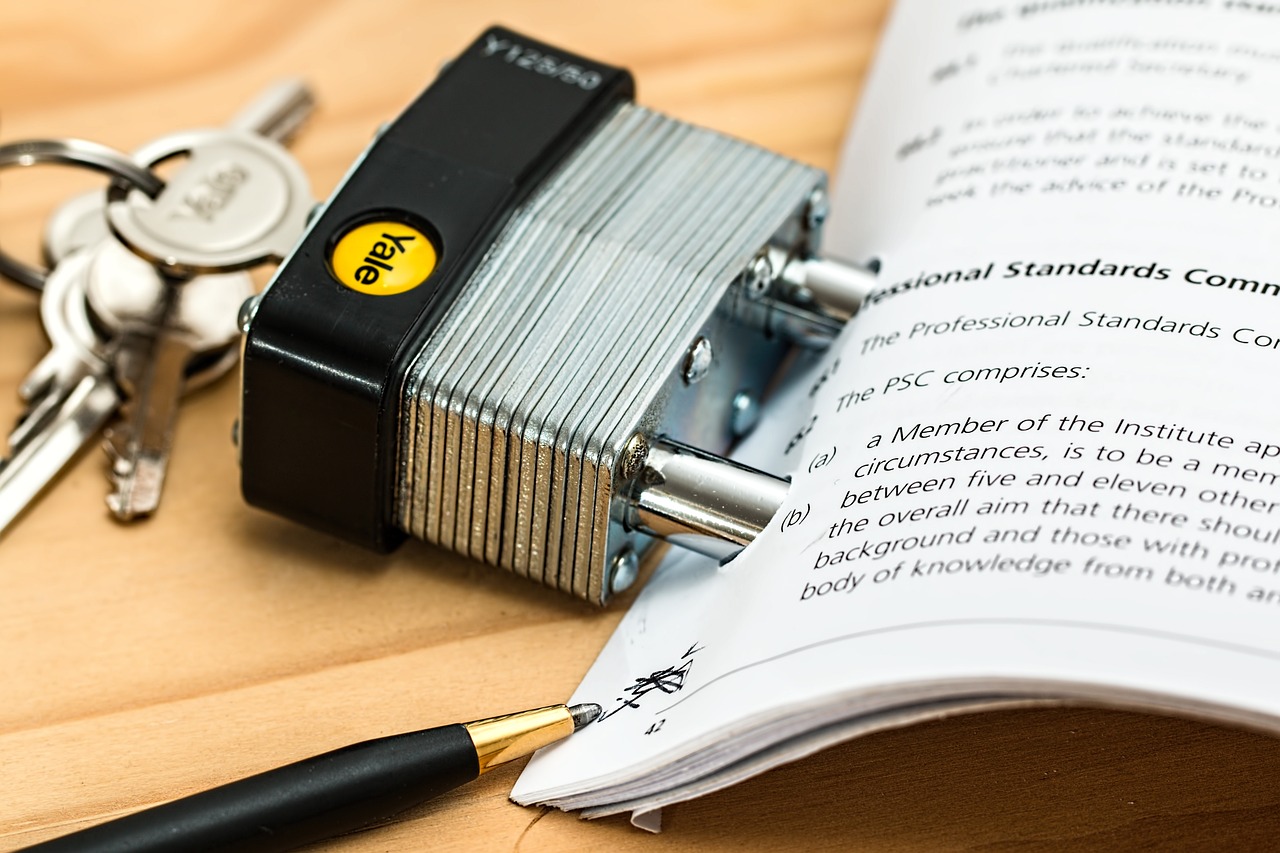Thinking about getting a prenuptial agreement but not sure where to start? Look no further! “Prenups Made Easy” is here to provide you with all the information you need to navigate this sometimes daunting legal process. Our articles are designed to address common concerns and provide reassurance and guidance. We want to make the process as simple as possible, so each blog post includes a clear call-to-action, prompting you to reach out to the attorney listed on our website for more information. With important details incorporated and emotional connections created, our content is optimized for search engines, ensuring you find the answers you’re looking for. Stay tuned for FAQs at the end of each blog post, providing brief yet helpful responses to frequently asked questions. Let’s make prenups easy together!

What is a Prenuptial Agreement
A prenuptial agreement, also known as a “prenup,” is a legal contract entered into by a couple before they get married or enter into a civil partnership. It outlines the division of assets, debts, and other important matters in the event of a divorce, separation, or death. A prenup allows individuals to protect their individual assets and minimize potential conflicts or financial disputes in the future.
Definition of a prenuptial agreement
A prenuptial agreement is a legally binding contract that specifies the rights and obligations of each spouse or partner in a marriage or civil partnership. It typically covers areas such as property division, spousal support, and the handling of future financial matters. The agreement is drafted and agreed upon before the marriage or civil partnership takes place, providing both parties with clarity and peace of mind regarding their financial arrangements.
Purpose of a prenuptial agreement
The main purpose of a prenuptial agreement is to provide a framework for the division of assets and financial responsibilities in the event of a divorce or separation. It allows couples to have open and honest discussions about their financial expectations and protects each individual’s rights and interests. A prenup can also be beneficial in cases where one or both partners have significant assets or debts, previous marriages, or children from previous relationships.
Benefits of a prenuptial agreement
There are several benefits to having a prenuptial agreement:
-
Clarity and certainty: A prenup provides clear guidelines for the division of assets and liabilities, minimizing conflicts and uncertainties in the event of a divorce or separation.
-
Protection of individual assets: With a prenup, each partner can protect their personal assets and ensure that they are not subject to division or distribution.
-
Preservation of family wealth: If one or both partners come from families with significant wealth or assets, a prenup can help protect those assets and ensure they remain within the family.
-
Avoidance of lengthy legal battles: By addressing potential issues and disputes in advance, a prenup can help couples avoid lengthy and expensive legal battles during divorce proceedings.
-
Financial transparency: A prenuptial agreement requires full disclosure of each partner’s financial situation, promoting transparency and trust in the relationship.
When to Consider a Prenup
Before getting married
It is best to consider a prenuptial agreement before getting married or entering into a civil partnership. By discussing and drafting a prenup early in the relationship, couples can establish open lines of communication about their financial expectations and avoid potential conflicts down the line.
After getting engaged
If a couple did not consider a prenup before getting engaged, it is still possible to create one after the engagement. While it may be a bit more challenging to broach the topic at a later stage, it is important to have these discussions and protect each individual’s rights and interests.
When having significant assets or debts
Couples with significant assets or debts should seriously consider a prenuptial agreement. This includes individuals who own property, businesses, investments, or have substantial savings. A prenup can help protect these assets and ensure they are distributed as intended in the event of a divorce or separation.
In case of previous marriages or children from previous relationships
If one or both partners have been previously married or have children from previous relationships, a prenuptial agreement can help clarify financial responsibilities and protect the rights of any children involved. It can also address issues such as inheritance and estate planning.
Getting Started with a Prenup
Find a qualified attorney
To ensure the legality and enforceability of a prenuptial agreement, it is crucial to work with a qualified attorney who specializes in family law. Look for an attorney who has experience in drafting prenups and can provide expert advice and guidance throughout the process.
Schedule an initial consultation
Once you have found a qualified attorney, schedule an initial consultation to discuss your intentions and goals for the prenuptial agreement. This is an opportunity to ask any questions you have and to provide the attorney with all the necessary information about your assets, debts, and financial situation.
Gather financial information
As part of the prenuptial agreement process, you will need to gather detailed financial information, including bank statements, investment portfolios, property documents, and any other relevant documents. This information will be essential for the attorney to draft an accurate and comprehensive agreement.
Discuss your goals and concerns
During the consultation with your attorney, it is important to discuss your goals and concerns regarding the prenup. Be open and honest about your expectations, and ensure that both you and your partner have a clear understanding of the terms and conditions you wish to include. Your attorney can help guide you through any difficult decisions and provide advice based on their expertise.

Key Elements of a Prenuptial Agreement
Full disclosure of assets and debts
A crucial element of a prenuptial agreement is full disclosure of each partner’s assets and debts. Both parties must provide complete and accurate information about their financial situation, including properties, investments, bank accounts, debts, and any other relevant financial assets or liabilities.
Property division and distribution
The prenup should clearly outline how the couple’s property and assets will be divided in the event of a divorce or separation. This may include specific provisions for the division of real estate, vehicles, personal belongings, and any other assets of value.
Spousal support or alimony provisions
A prenuptial agreement can address the issue of spousal support or alimony payments in the event of a divorce or separation. It can specify whether one party will receive support and for how long, or if both parties will forgo any spousal support altogether.
Guidelines for handling future financial matters
In addition to addressing immediate concerns, a prenup can also set guidelines for handling future financial matters. This can include agreements about joint bank accounts, financial decision-making, and how the couple will handle any potential changes in circumstances such as starting a business or acquiring additional assets.
Understanding Legal Requirements
Voluntary agreement without coercion or duress
For a prenuptial agreement to be legally binding, both parties must enter into the agreement voluntarily and without any coercion or duress. It is essential that neither partner feels pressured or forced to sign the agreement against their will.
Fair and reasonable terms
To ensure the enforceability of a prenup, it must be considered fair and reasonable by a court of law. It should not favor one party over the other to an extreme extent, and both partners should have had an opportunity to review the agreement with their respective attorneys.
Proper execution and notarization
To make a prenuptial agreement legally valid, it must be properly executed and notarized. Both parties must sign the agreement in the presence of witnesses, and a notary public must acknowledge the signatures. This step helps protect against any claims of forgery or coercion.

Negotiating and Drafting the Prenup
Identify priorities and non-negotiables
During the negotiation and drafting process, it is important to identify your priorities and non-negotiables. Communicate openly with your partner and your attorney about what matters most to you, and be willing to compromise on less important issues.
Consider both short-term and long-term implications
When drafting a prenup, it is essential to consider both short-term and long-term implications. While it’s impossible to predict the future, considering potential scenarios such as changes in income, the birth of children, or significant changes in assets is crucial. Flexibility and foresight can help ensure that the agreement remains fair and reasonable in different circumstances.
Engage in open and honest communication
Throughout the negotiation process, it is vital to engage in open and honest communication with your partner. Discuss your concerns, fears, and goals, and actively listen to your partner’s perspective. Remember that the goal is to reach a mutually beneficial agreement that protects the rights and interests of both parties.
Review and revise the agreement
Even after the initial draft is completed, it is important to review and revise the prenup if necessary. Both parties should have their respective attorneys review the agreement and provide feedback. Changes can be made as needed to ensure that the agreement accurately reflects both parties’ intentions and circumstances.
Reviewing and Finalizing the Prenup
Allowing sufficient time for review
Once the prenuptial agreement is drafted, it is essential to allow both parties sufficient time to review it thoroughly. Rushed decisions can lead to mistakes or oversights. Take the time to carefully read and understand each provision, and consult your attorney if you have any questions or concerns.
Seeking independent legal advice
Each party should have their own independent legal advice when reviewing the prenuptial agreement. This ensures that both individuals fully understand the terms and implications of the agreement and have had an opportunity to voice any concerns or negotiate changes if necessary.
Signing the agreement with witnesses and notary
To make the prenuptial agreement legally binding, both parties must sign the document in the presence of witnesses and a notary public. The witnesses should be impartial individuals who are not named in the agreement. The notary public will acknowledge and certify the signatures, providing additional legal validity.
Common Misconceptions and Concerns
Prenups are only for wealthy individuals
Contrary to popular belief, prenuptial agreements are not just for the wealthy. They can benefit individuals with any level of assets or debts. Prenups provide clarity and certainty for all parties involved, regardless of their financial situation.
Prenups are unromantic
While discussing a prenuptial agreement may not be the most romantic aspect of wedding planning, it is an important step in protecting both individuals’ rights and interests. By openly addressing financial matters, couples can establish a foundation of trust and transparency in their relationship.
Prenups increase the chances of divorce
There is a common misconception that having a prenuptial agreement increases the likelihood of divorce. However, research has shown that discussing and planning financial matters in advance can actually strengthen a relationship. A prenup can provide a framework for open communication and help prevent conflicts in the future.
Enforcing and Modifying a Prenuptial Agreement
Adhering to the terms of the agreement
After a prenuptial agreement is signed, both parties are legally bound to adhere to its terms. It is essential for both individuals to fulfill their obligations and responsibilities as outlined in the agreement. Failure to do so can result in legal consequences.
Challenging the validity of the prenup
In certain circumstances, a prenuptial agreement may be challenged in court. This can happen if one party can prove that the agreement was not entered into voluntarily, that it was unfair or unreasonable, or if there was fraud or misrepresentation involved. However, successfully challenging a prenup can be challenging, and it is important to seek legal advice in such situations.
Modifying the agreement in the future
In some cases, couples may decide to modify their prenuptial agreement after they are married. This can be done through a postnuptial agreement, which is a similar legal document that is entered into after the marriage or civil partnership has taken place. Both parties must agree to the changes, and the postnup must be executed and acknowledged in the same manner as a prenuptial agreement.
Frequently Asked Questions
Are prenuptial agreements legally binding?
Yes, prenuptial agreements are generally legally binding as long as they meet certain criteria, such as being entered into voluntarily and without coercion, having fair and reasonable terms, and being properly executed and notarized. However, it is important to consult with an attorney to ensure that your specific prenup meets all the legal requirements in your jurisdiction.
Can a prenup cover child custody and child support?
In most jurisdictions, child custody and child support cannot be determined or modified in a prenuptial agreement. These matters are typically decided by family courts based on the best interests of the child at the time of divorce or separation. However, couples can include provisions for how they intend to handle these matters in the event of a divorce or separation, as long as the agreement does not contradict the law.
Can a prenup be challenged in court?
Yes, a prenuptial agreement can be challenged in court under certain circumstances. If one party can prove that the agreement was not entered into voluntarily, that it was unfair or unreasonable, or if there was fraud or misrepresentation involved, a court may deem the prenup void or modify its terms. It is important to seek legal advice if you believe there are grounds to challenge a prenuptial agreement.
























